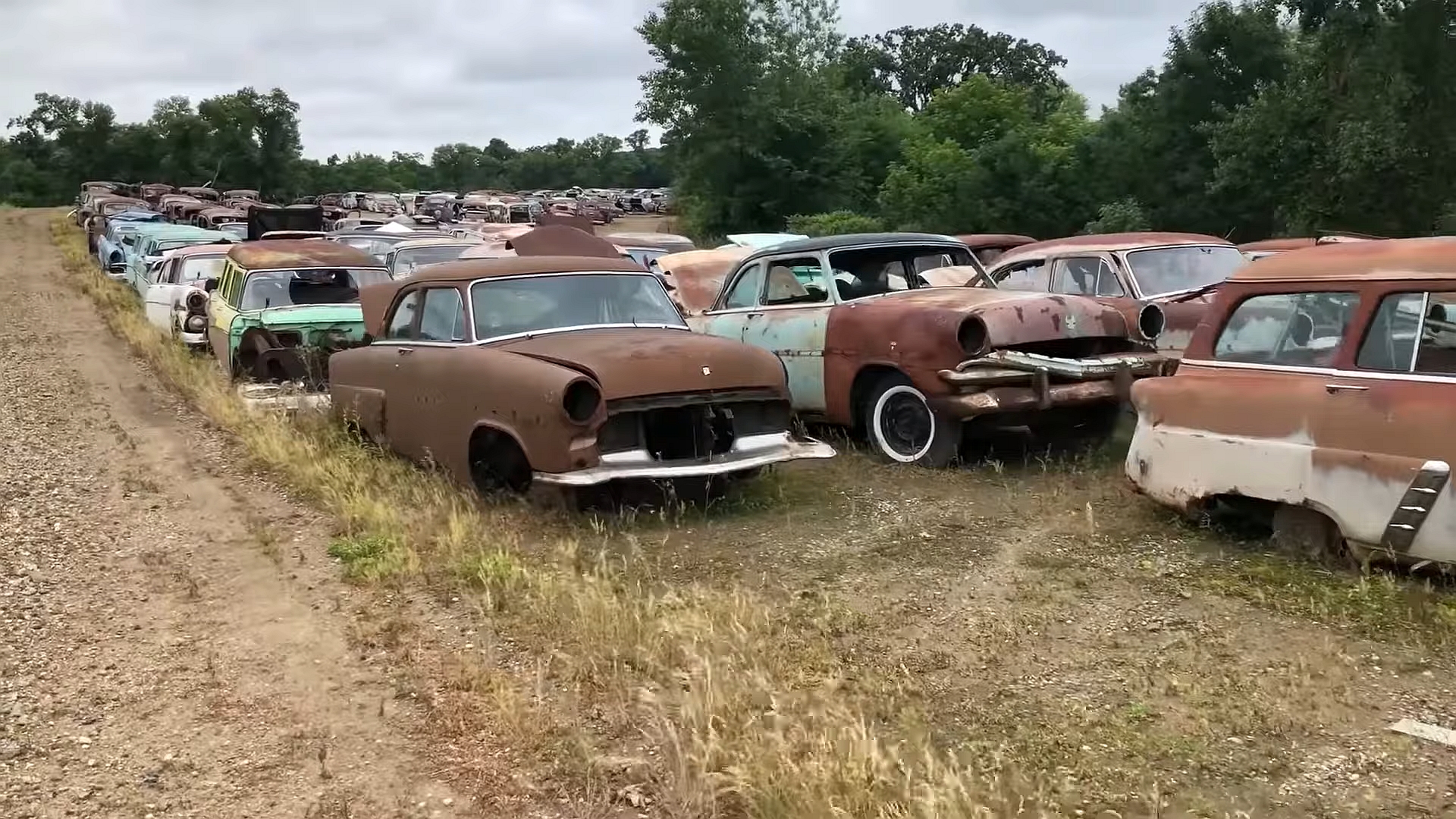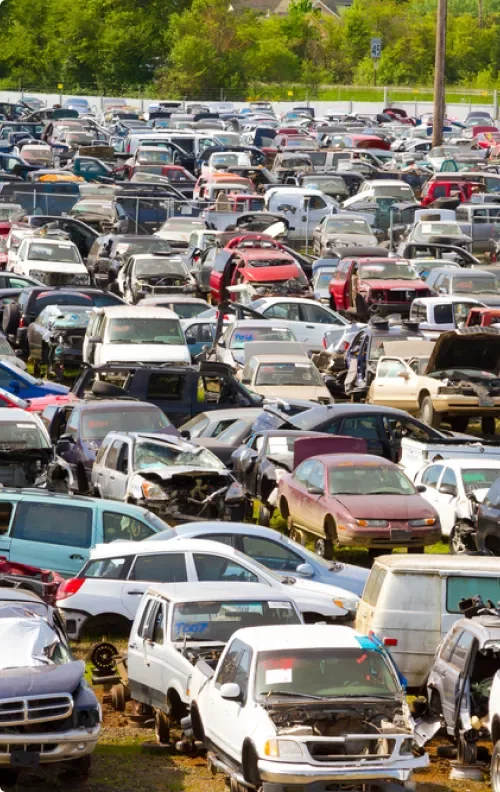Sell My Junk Car Denver: Transform Your Old Car into Cash Today
Sell My Junk Car Denver: Transform Your Old Car into Cash Today
Blog Article
The Economic and Ecological Advantages of Reusing Scrap Cars
Reusing junk cars offers numerous economic and environmental advantages that expand well beyond waste reduction. By recovering approximately 90% of vehicle parts, this method significantly reduces garbage dump worry while preserving necessary all-natural sources. Moreover, it reduces energy usage and greenhouse gas discharges linked to raw product removal and production. The process also produces employment chances throughout numerous fields, from dismantling to logistics, and offers consumers with economical automobile components. These benefits highlight the complex worth of recycling junk cars and trucks, yet there are better facets to take into consideration when reviewing its complete effect.
Decreasing Landfill Waste
Reducing landfill waste via the recycling of scrap cars and trucks plays a critical role in environmental conservation. When cars reach the end of their life cycle, reliable recycling processes can considerably decrease the quantity of waste that winds up in land fills. Scrap cars and trucks, if not correctly reused, add to the growing problem of landfill overcapacity, worsening environmental destruction and possibly contaminating dirt and groundwater with dangerous compounds such as oil, gas, and heavy steels.

Additionally, the reusing procedure minimizes the damaging effects of automotive waste on biodiversity. Garbage dumps are well-known for interrupting regional ecological communities, and reducing the influx of scrap vehicles assists protect all-natural environments. Eventually, reusing scrap autos is a critical strategy that cultivates lasting waste monitoring, straightening with more comprehensive environmental objectives.
Conserving Natural Resources
Along with mitigating land fill overcapacity, reusing scrap cars and trucks plays a considerable function in saving all-natural sources. The automobile industry is heavily reliant on various steels, plastics, and various other materials that require extensive mining and handling. By recycling junk vehicles, we significantly reduce the need for basic materials, thereby curbing the ecological destruction related to mining activities. For example, recycling steel from old automobiles reduces the requirement for iron ore removal, which subsequently reduces energy usage and greenhouse gas discharges.
Additionally, the process of reusing vehicle parts such as light weight aluminum, copper, and lead is far much less energy-intensive than producing these products from virgin resources. This energy financial savings translates straight right into minimized nonrenewable fuel source usage and reduced carbon footprints (junk car buyers). In addition, by reclaiming and repurposing materials, we expand the lifecycle of non-renewable resources, ensuring they stay available for future use
Moreover, reusing automotive fluids like oil, transmission, and antifreeze liquid protects against dangerous substances from polluting dirt and water sources. With systematic recycling initiatives, these liquids can be purified and reused, advertising a circular economic situation and additional decreasing the stress on natural resources. Therefore, reusing junk cars and trucks offers a diverse technique to preserving our earth's very useful natural possessions.
Producing Task Opportunities
The recycling of junk autos not just benefits the setting however also boosts financial growth by developing task chances. This burgeoning market provides a wide selection of employment prospects, varying from the initial collection and transport of old vehicles to the detailed processes of taking down, sorting, and repurposing the numerous components.

The expansion of recycling plants even more enhances the task market, requiring functions such as engineers, device operators, and top quality control professionals to make sure and handle the advanced machinery compliance with ecological laws. Also management settings, such as sales, advertising, and client service, see a surge as the industry increases.
Decreasing Manufacturing Costs
By incorporating recycled materials from scrap cars and trucks, makers can considerably lower manufacturing expenses. The utilization of recycled steel, light weight aluminum, and other important metals lowers the requirement for basic material extraction, which is both pricey and energy-intensive. This not only conserves all-natural resources however also converts into significant expense savings for vehicle manufacturers. The power required to view it now refine recycled products is substantially much less than that needed to produce brand-new products from scrape. This reduction in power intake directly associates with lowered manufacturing costs.
In addition, the recycling process assists simplify the supply chain by providing a stable increase of products that are conveniently offered and often less expensive than recently extracted sources. These price efficiencies are particularly important in a very affordable sector like auto production, where margins can be razor-thin. Additionally, the recycling of junk vehicles assists alleviate the unstable prices of basic materials, making it possible for suppliers to far better projection and regulate their manufacturing spending plans.
Providing Inexpensive Auto Parts
When junk vehicles are recycled, the accessibility of cost effective vehicle parts significantly enhances, benefiting both customers and service center. Recycled vehicle components are usually cost a portion of the expense of new parts, offering an economical choice for lorry owners and mechanics. This affordability can be crucial for individuals who may not have the economic methods to buy brand-new parts, enabling them to maintain their vehicles in functional and risk-free condition.
Repair shops additionally get from this enhanced availability of economical parts. By sourcing recycled elements, these companies can lower their operational costs, which can be handed down to customers with lower solution charges. This, consequently, can bring about higher customer satisfaction and loyalty, as customers value the price financial savings without compromising on top quality.
In addition, the top quality of recycled parts has actually boosted dramatically for many years, thanks to innovations in recycling processes and quality assurance steps. Several recycled parts undergo rigorous screening to ensure they meet industry standards, providing dependability equivalent to new components - sell my junk car denver. By providing a top quality and financially viable choice, the recycling of scrap cars and trucks plays a pivotal function in sustaining both the auto repair service industry and the more comprehensive customer market
Final Thought
Recycling official source junk automobiles presents substantial economic and ecological advantages by dramatically decreasing landfill waste and preserving all-natural resources. Overall, the recycling of scrap autos supports both economic growth and sustainability purposes.
Recycling scrap vehicles presents numerous financial and environmental advantages that expand well past waste decrease. Junk cars and trucks, if not properly reused, contribute to the growing problem of landfill overcapacity, aggravating environmental degradation and potentially infecting soil and groundwater with dangerous materials such as oil, gas, and heavy steels.
By reusing junk cars and trucks, we dramatically lower the demand for raw materials, therefore curbing the environmental degradation associated with mining tasks.When scrap autos are recycled, the schedule of budget friendly vehicle parts significantly enhances, benefiting both consumers and repair work stores.Reusing junk cars and trucks provides considerable economic lauderdale junk car and environmental advantages by considerably minimizing land fill waste and conserving natural resources.
Report this page